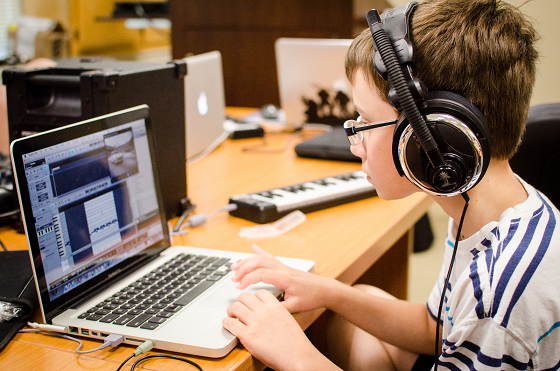You Don't Have to be Face-to-Face to Meet Online!
While face-to-face Scouting is suspended it's still possible for youth members to meet virtually with one another and their leaders.
Leaders can organise online meetings of their sections to keep young people in touch with Scouting and to help support young people through the completion of badges and awards from home.
Using online teleconference or web-meeting applications (e.g. Microsoft Office Teams, Google G-Suite Hangouts, Google Groups, or even Facebook Messenger, Apple Facetime etc - which are free for charities to use) it is possible for leaders, supporters and youth members to speak online, to share documents and screens and - with the use of a webcamera - to see one another.
The Scout Association has produced a list of popular software programmes which can be used - see Digital Platforms for Scouts (note however that Durham Scouts are not currently recommended the use of Zoom, until the the likelihood of unknown security issues are more fully understood).
Using such technology allows plenty of programme ideas to take place - opening and closing ceremonies can be adapted, badge and award requirement can be explained and work completed at home can be shared, you can run virtual campfire singalongs, test home made musical instruments, play word games, run treasure hunts, make crafts etc - just use your imagination or use some of our Scouting from Home resources and ideas.
Internet Relay Chat (IRC) provided by ScoutLink can provide a secure, moderated means for your sections to meet together or with other Scouts from around the world (see https://www.jotajoti.info/irc). Please contact ScoutLink at help@scoutlink.net if you would like to set something up for your section. The more technical minded of you could even consider setting up your own IRC channels (see http://www.irchelp.org/) which has the advantage of low bandwidth requirements suitable for mobile devices at low cost).
Encourage everyone to wear uniform for on-line meetings - even if they're not on camera it will still feel like a normal meeting.
Important Things to Remember
- Leaders should ensure that appropriate safeguarding guidance is followed with respect to all on-line communications with young people. At least two adults must be involved in any on-line meeting (why not ask parents to help?)
- Parents/carers of younger members should supervise their on-line meetings
- Remember that minimum age requirements apply to most social media accounts and platforms
- Please cover Internet safety with young people in initial on-line meetings (see https://www.durhamscouts.org.uk/for-members/safeguarding/ for resources)
- Meeting on-line can be tiring and screen time should be limited. Meetings may therefore be shorter than usual
- On-line meetings should be supported by other means of communication with youth members and parents/carers, typically using Online Scout Manager messaging or social media such as Facebook and Twitter for regular updates between on-line meetings
- Additional efforts may be needed to ensure that on-line meetings are not the only way to participate in a Scouting at Home programme (e.g. two or three friends meeting at one house, with a trusted adult supervising). This way we can include those members for whom regular Internet access may be a challenge or who may not have a computer or web camera.
- Leaders will need to ensure that all participants play an active part in online meetings, giving everyone a chance to be heard and take part
For further details of our online safeguarding guidelines see the Scout Association Staying Safe Online guidance
Tips and Tricks for Successful Online Meetings
- Have a preparation / planning call first, so that everyone understands how the technology works and who's doing what
- If you have a large screen, connect to that so that you can see all of your youth members as clearly as possible (most modern TVs will accept an HDMI/VGA input from a laptop)
- Share equipment / material requirements ahead of time
- Don’t rely on sharing resources on-screen
- Maintain a structure to meetings
- Opening and closing ceremonies, notices, games, activities - but adapt for online (what works in the meeting place may not work as well online)
- Outline the programme at the start
- Meet in uniform
- Keep it short, fast moving and fun and end on a high note
- Mix a combination of screen and non-screen activities e.g. Treasure hunts, craft ideas
- Set some ground rules about online etiquette
- Explain who speaks when
- Explain how to attract attention when they want to speak (make a little flag to wave!)
- Nodding or shaking heads often works better than everyone shouting 'yes' or 'no'
- The ability to mute / unmute everyone at once is very useful, as the is ability to mute everyone on joining the call
- Check that everyone knows how to mute/unmute themselves (get them to test this in turn and watch as they do it)
- Ensure that everyone plays an active part
- Keep track of who is and isn’t speaking and invite everyone to take part
- Have someone to monitor / moderate any on-line ‘chat’ function

 Email a friend
Email a friend Share on Facebook
Share on Facebook Share on Twitter
Share on Twitter